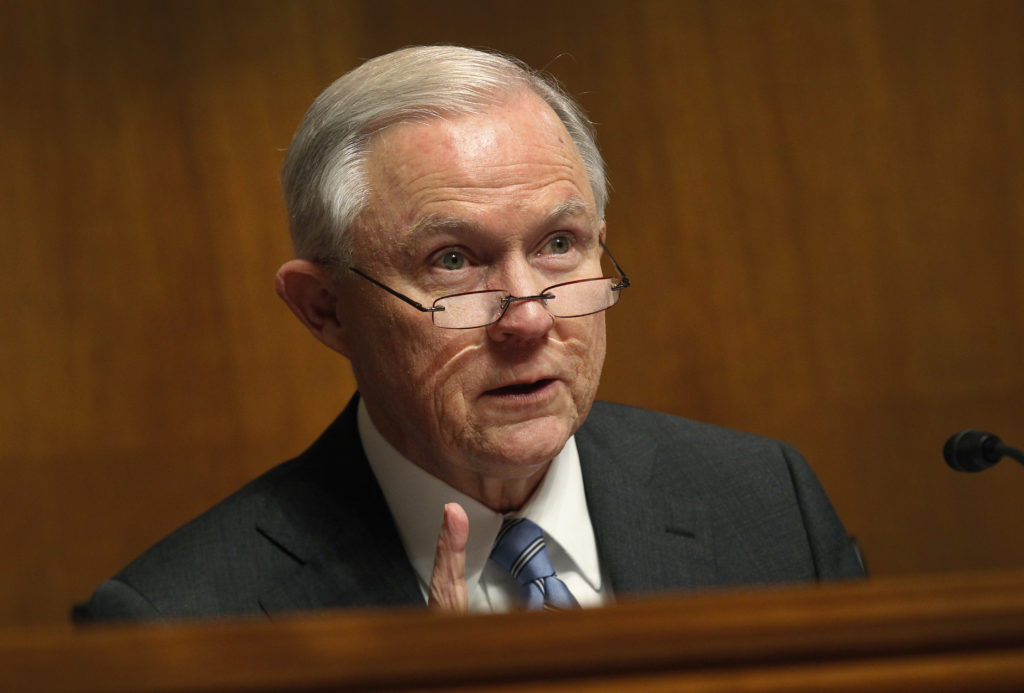On July 30, Attorney General Jeff Sessions announced the creation of a Religious Liberty Task Force within the Department of Justice (DOJ). The task force would ensure that all divisions of the DOJ were following religious liberty guidelines “in the cases they bring and defend, the arguments they make in court, the policies and regulations they adopt, and how we [sic] conduct our operations.”
The religious liberty guidelines to which Sessions referred were released last October and apply to all federal agencies. The guidelines establish twenty principles enshrined in Supreme Court jurisprudence and federal law. Here are a few excerpts:
- “The free exercise of religion includes the right to act or abstain from action in accordance with one’s religious beliefs.” (emphasis in original)
- “Americans do not give up their freedom of religion by participating in the marketplace, partaking of the public square, or interacting with government.”
- “Government may not target religious individuals or entities through discriminatory enforcement of neutral, generally applicable laws.”
- “RFRA [the Religious Freedom Restoration Act of 1993] does not permit the federal government to second-guess the reasonableness of a religious belief.”
These principles, among others, are designed to help executive agencies avoid infringing on the free exercise of religion that is protected in the First Amendment.
But Sessions warned these principles were not enough: “In recent years, the cultural climate in this country—and in the West more generally—has become less hospitable to people of faith. Many Americans have felt that their freedom to practice their faith has been under attack.” Among the particular attacks he mentioned were those made against Jack Phillips and the Little Sisters of the Poor, which the IRD has covered in the past.
Thus, while these 20 principles provide a static defense for religious liberty, Attorney General Sessions believed it was necessary to establish a task force that would streamline the Justice Department’s efforts to target religious discrimination proactively.
As a longtime Methodist, Sessions has a clear interest in preserving for Christians the freedom to practice their historic beliefs. Critics of the Religious Liberty Task Force have latched onto that fact to charge that it is “part of a dangerous Christian nationalist campaign of discrimination” or that it is merely a tool for the Trump administration to pander to the white, conservative, born-again Christians and Catholics among his base. Author and columnist Jonathan Merritt took his criticism a step further to say that administration officials like Sessions had redefined religious liberty altogether so that it “connotes freedoms and privileges granted mostly to Christians — specifically, the white conservative Christians who form a vital part of the Republican base.” However, Sessions’ Justice Department has not confined itself solely to protecting Christians. This summer alone, it has entered the fray on behalf of Muslims, Jews, and Hindus who were the targets of religious discrimination.
Thus, even before creating the Religious Liberty Task Force, the DOJ had been fighting to protect the religious beliefs of all Americans, regardless of their religion. Now that there is a task force specifically oriented towards religious liberty, it is reasonable to expect that the religious liberty of all Americans will receive even stronger protection.





Comment by David on September 20, 2018 at 8:09 am
“The free exercise of religion includes the right to act or abstain from action in accordance with one’s religious beliefs.” Suppose as a member of the Church of Rendering not unto Caesar, I decide not to pay an taxes. Am I now protected from prosecution?